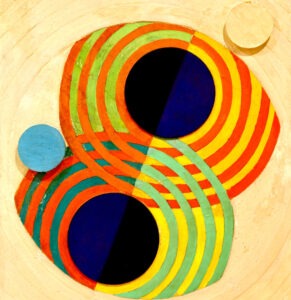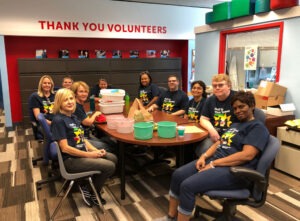
April 25, 2017, BBC
The cofounder of Wikipedia, Jimmy Wales, has announced the upcoming launch of a news service combining volunteer writers and professional journalists. He is calling his new model to fight “fake news” with “factual and neutral” articles Wikitribune. It will be free to online readers and will rely on donors buying monthly subscriptions instead of advertising.
Wikipedia already operates somewhat similarly: Volunteers create content, including attributing sources for the facts, but the public is able to edit the articles with Wikipedia staff as overseers. Unlike a traditional Wikipedia page, the proposed volunteer-generated news pieces on Wikitribune would be released only after editor review.
If this sounds familiar to you, consider that these very NPQ newswires you’re reading now have been written by volunteer writers and then reviewed for accuracy and facts cited by paid editors and journalists at a nonprofit which relies on donors. Accordingly, we can look at Jimmy Wales’ idea with a practiced eye; we think it works, but it needs the right mix of staff and protocols—and some serious capital.
Mr. Wales is hoping to raise enough funds for ten to twenty paid journalists, stating, “In terms of minimums, if we could only hire two journalists, then it would be a blog and not really worth doing.”
Mr. Wales intends to work on Wikitribune full-time for the near future, with input from advisors like Silicon Valley venture capitalist Guy Kawasaki, journalism lecturer Prof. Jeff Jarvis, U.S. law professor Larry Lessig, and model/actress Lily Cole.
The director of Harvard University’s Nieman Journalism Lab, Joshua Benton, suggested that the crowdfunding model might limit Wikitribune’s potential. “There are a variety of people who—if it does this right—will view it as a trusted platform,” he said, but at 10–20 journalists, it’s unlikely that Wikitribune can fix the fake news problem; while it may be successful, he cannot see it scaling up.
Sign up for our free newsletters
Subscribe to NPQ's newsletters to have our top stories delivered directly to your inbox.
By signing up, you agree to our privacy policy and terms of use, and to receive messages from NPQ and our partners.
The online encyclopedia has 295 Wikipedias by language, with 284 active at the moment. It is difficult to imagine that the news model could grow to that size. Commercial news organizations have to have people moving around the globe to succeed, even bureau chiefs in significant geographical regions. That will require many more dollars and more time spent on fundraising than program.
Besides the scaling up, another feature of Mr. Wales’s plan is troubling to a journalist’s ethos: “Funders will get to influence the contents.”
“If you can get together a certain number of people who are interested in Bitcoin [for example] and you flag that when you sign up as a monthly supporter, then we’ll hire a Bitcoin person to do the beat full-time,” Mr. Wales explained. “So, it’s the monthly supporters who will be able to determine what are the topics we are going to cover. But it is going to be neutral. They can’t pick their favorite hack, who pumps forward their agenda. That’s part of the editorial control.”
The proposition is interesting, as it extends the idea of a self-organized system to its revenue flows, much as in Wikipedia’s central work. But, funder influence can be a tricky ethical issue on nonprofit news sites once you allow it to affect editorial choices in any way. Still, these waters should hardly be new to Wikipedia.
On the positive side, it has become apparent in the “fake news” era that people will pay for higher quality news, evidenced by the increase in subscriptions for the New York Times and the Guardian in 2017. Wales wants to get users to pay for news and then play a hugely active role in determining its focus. While “charity is a poor basis for journalism,” Mr. Wales believes that users will invest in his plan, financially and emotionally.
But still, Jimmy Wales should have a conversation with the NPQ editors and staff—and the volunteer writers who have been working in this mode for nearly a decade. After years of experience using this “new” model of volunteer writers and paid editors, NPQ might help him understand its very rich benefits as well as some of its scaling issues.—Marian Conway













